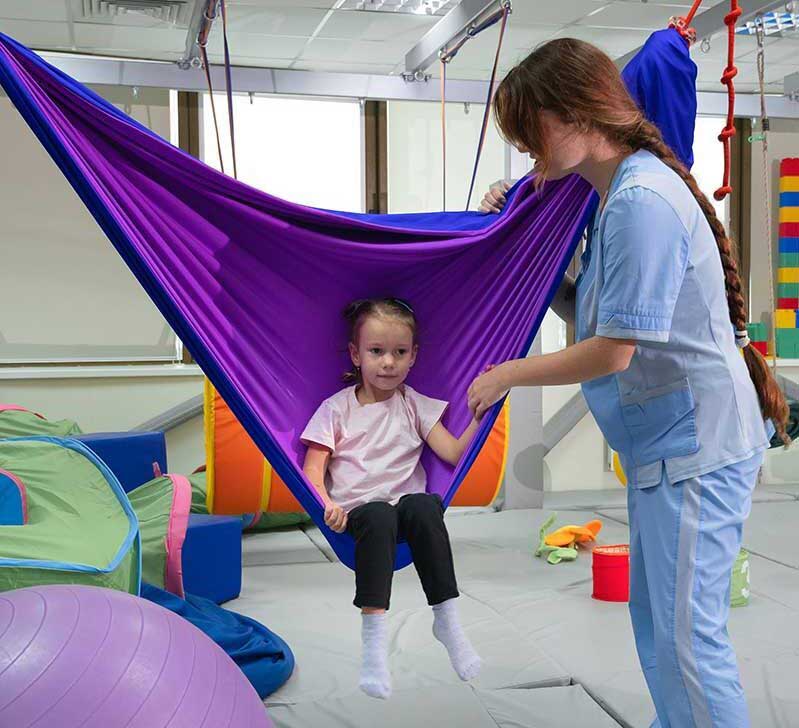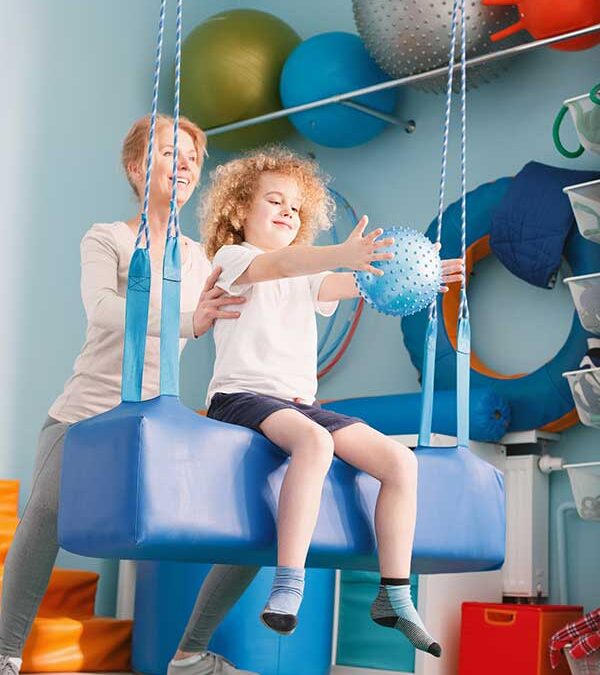ABA Therapy for Kids
Child ABA Therapy
Applied Behavior Analysis has proven incredibly effective for children diagnosed with Autism Spectrum Disorder (ASD) from 2 to 12 years old with mild to severe symptoms. ABA helps kids flourish by providing custom therapy programs and enhancing developmental outcomes using play-based activities.
At ABA Centers of Washington, we recognize that every neurodivergent child has exceptional talents and unique struggles. Our clients deserve much better than a one-size-fits-all approach to therapy.

Personalized ABA Therapy
We personalize every intervention with an eye towards a child’s dreams and future goals as we promote participation in every aspect of their life. Unlike other therapy providers, we believe in utilizing minimally intrusive programs that encourage self-discovery and untapped autonomy.
In many cases, ABA therapy hours range between 20 and 40 a week for up to three years. Board Certified Behavior Analysts (BCBAs) design ABA programs utilizing critical data to comprehend a child’s experience. With this knowledge and expertise, they optimize ABA treatment outcomes to establish social skills, communication, and other essential behaviors to help kids with autism advance through life.
One-on-One Approach
Next, Registered Behavior Technicians (RBTs) work directly with children on their custom ABA therapy programs, all while recording data for BCBAs to analyze. All our ABA professionals receive licensure through the Behavior Analyst Certification Board.
For toddlers and pre-K, ABA therapy is typically an all-day program for school readiness and milestone development. We strive to accommodate every family and their needs to ensure no neurodivergent child is unsupported.

The ABA Journey
Every ABA therapy program begins with an assessment by a BCBA. Your provider will start evaluating patterns and considering long-term goals during this time. After spending time with your family to understand their challenges and dynamics, the BCBA will create an ABA therapy plan to meet your child’s needs and improve their life.
During ABA sessions, RBTs work with clients and their families to help them acquire essential skills, continually monitoring progress through review. According to measurements in behavior, goals are adapted and evolve to suit the client as they age.
An official autism spectrum diagnosis is essential to acquiring ABA therapy services. Learn more about the autism testing and diagnostic process.
Child ABA Therapy Options Include:
- Autism Testing and Diagnosis Services
- In-Home ABA Therapy
- Parent Training
- Life, School, and Community Integration Skills
ABA Therapy Can Teach Skills Your Child Needs
Coping Skills
Living with autism can be challenging. ABA Therapy teaches children the skills necessary to regulate their emotional state. These skills include learning human behavior, controlling impulses, and thinking through their choices.
Daily Living Skills
ABA therapy teaches essential skills for starting the day independently, such as using the toilet, brushing teeth, bathing, face washing, and putting on clothes. Our therapists will guide your child through gradual steps to establish routines for their daily activities.
Gross & Fine Motor Skills
Children with autism sometimes struggle with muscle development and body coordination. ABA therapy can help develop motor skills with activities like:
- Playing with putty, clay, or slime
- Watering plants with a squeeze bottle
- Opening snacks or plastic containers and closing them
- Playing with Lego blocks
- Depositing coins into piggy banks
- Playing with marbles
- Cutting shapes with scissors
Reading / Writing
ABA therapy improves academic performance by promoting reading and writing skills. The following are some of the possible activities:
- Scribbling or doing color exercises on paper
- Tracing exercises to improve coordination
- Writing letters and numbers
These exercises not only enhance fine motor skills but also contribute to the development of handwriting proficiency.
Social Skills
Our program focuses on nurturing the necessary communication skills for your child to thrive, which include:
- Engaging in social pretend play, such as feeding animal toys or preparing a meal
- Encouraging sharing of toys while playing and taking turns
- Exploring personal choices, guiding reactions, and expressing interests through communication
Visual/Perception Skills
Visual and perception skills are a cornerstone of intelligence and development. We foster these abilities by incorporating activities such as:
- Playing with puzzles
- Matching identical objects from a selection
- Playing memory games for better retention of visual information
- Playing games like “Where’s Waldo?” that focus on finding hidden objects in busy pictures
Positive Reinforcement in Child ABA Therapy
The critical element of ABA Therapy is positive reinforcement. When a child engages in healthy behavior, and a reward follows, they are more likely to repeat it. Over time, this creates new patterns and encourages positive change.
During ABA sessions, a therapist identifies a goal behavior, and each time the child successfully follows through, they receive something specifically meaningful.
Examples of rewards include:
- Praise
- A book or toy
- Watching a video or playing a video game
- Access to the park or playground or favorite food
With continued practice, the child will blossom and replace inappropriate, counterproductive behavior with skills that will aid them in life.
Start Your Child's ABA Journey with the Industry's Best
At ABA Centers of Washington, we focus on understanding your child’s behavior and needs. Regardless of how neurodiversity touches your family, we can ensure our ABA therapy programs for children offer clients and their families the optimal opportunities to lead full, independent, and enriching lives.
For more information about us and your options for autism care, call us at (877) 554-0710 to schedule a complimentary, zero-obligation consultation with a member of our expert team.


